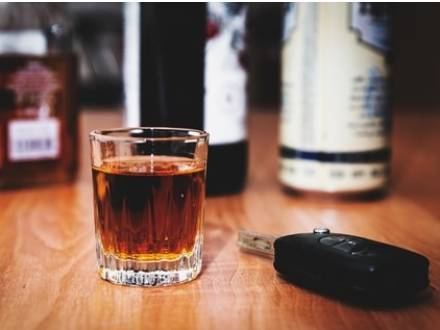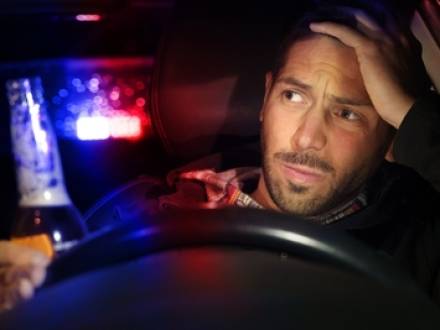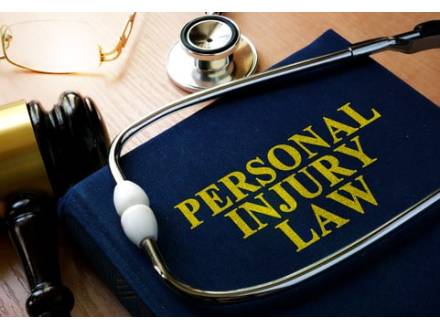Recent Blog Posts
Who Inherits If You Die Without a Will in Ohio?
 Estate planning is more important than you might think. Regardless of your age or level of assets, death can happen unexpectedly. Dying without a will is known as dying "intestate," as detailed in Title 21, Section 2105.06. Those who die intestate can leave their loved ones facing delays, confusion, and unexpected outcomes.
Estate planning is more important than you might think. Regardless of your age or level of assets, death can happen unexpectedly. Dying without a will is known as dying "intestate," as detailed in Title 21, Section 2105.06. Those who die intestate can leave their loved ones facing delays, confusion, and unexpected outcomes.
In Ohio, as in most states, when a person dies without a valid will, state law will determine who will inherit the decedent’s assets. These laws follow a very strict order of inheritance that might be contrary to what the decedent would have wanted.
In situations involving blended families, unmarried partnerships, or situations with estranged family members, the state’s choice of those who will inherit could be vastly different. A much better choice is to speak with an experienced Summit County, OH estate planning attorney who can help you create a plan that ensures those you choose will inherit your assets in the simplest way possible.
How Are Multi-Car Collisions Different from Two-Car Collisions?
 Recently, an 88-year-old man driving a Chevy Camaro ran a red light, causing a three-car collision in Fairfield Township. A police officer in the lane next to the Camaro and a man in a Ford F-150 were also involved in the collision.
Recently, an 88-year-old man driving a Chevy Camaro ran a red light, causing a three-car collision in Fairfield Township. A police officer in the lane next to the Camaro and a man in a Ford F-150 were also involved in the collision.
The F-150 rolled over due to the crash, and the 88-year-old man was ejected from the Camaro and flown via medical helicopter to UC Medical Center with life-threatening injuries. Drugs and alcohol are not believed to be factors in the crash, although the elderly man may have had a medical condition that contributed to the collision.
When more than two cars are involved in a collision, there are some differences in how liability is proven. It can be more difficult to secure a settlement that covers all your damages when you are involved in a multi-car accident, and injuries could be more severe. This makes it a smart choice to speak to a Wadsworth, OH personal injury lawyer.
What Are the Grounds for Divorce in Ohio?
 While all states, including Ohio, allow no-fault divorce, only 17 states and the District of Columbia do not provide an option for filing for divorce on fault grounds. In the state of Ohio, you must provide a legal "reason" for the divorce. One of those reasons is incompatibility, which, along with irreconcilable differences, is generally considered to be "no-fault." Grounds for divorce are one spouse telling the other why he or she is filing for divorce.
While all states, including Ohio, allow no-fault divorce, only 17 states and the District of Columbia do not provide an option for filing for divorce on fault grounds. In the state of Ohio, you must provide a legal "reason" for the divorce. One of those reasons is incompatibility, which, along with irreconcilable differences, is generally considered to be "no-fault." Grounds for divorce are one spouse telling the other why he or she is filing for divorce.
Grounds do not determine how marital property will be divided or whether spousal support will be awarded and generally have nothing to do with child custody or child support. If you are facing divorce and are unsure whether you should file under incompatibility or specifically name a fault, it can be beneficial to speak to an experienced Wadsworth, OH divorce lawyer.
How Can I Get Compensation After a Collision With a Drunk Driver?
 A car crash with a drunk driver can be a harrowing experience to live through. It may even be your closest brush with death. If you or a loved one has been injured by a drunk motorist, you may have grounds to file a personal injury claim against the driver at fault. An Ohio car accident attorney can fight for your right to compensation, holding the drunk driver accountable for your damages.
A car crash with a drunk driver can be a harrowing experience to live through. It may even be your closest brush with death. If you or a loved one has been injured by a drunk motorist, you may have grounds to file a personal injury claim against the driver at fault. An Ohio car accident attorney can fight for your right to compensation, holding the drunk driver accountable for your damages.
The Law Office of Whitney K.S. Miller, LLC stands as a devoted advocate for car accident victims. We believe that negligent, reckless drivers should be made to answer for the harm they cause other people. To that end, our personal injury attorneys will carry out a full investigation into the drunk driving accident to identify everyone at fault, pushing for maximum compensation.
Call The Police
One of the first things you should do after any car accident, but especially a drunk driving accident, is to call the police. The main purpose of this call is to get a police report in writing, which can serve as critical evidence for your claim. The police officer can also help you get the other driver’s insurance information at the site of the accident.
When Is Domestic Violence a Felony in Ohio?
 Domestic violence is usually a misdemeanor criminal offense. It is more serious than an assault against someone you do not have a family or dating relationship with but less serious than a felony. Under some circumstances, however, domestic violence can be charged as a felony in Ohio. Felonies are serious criminal charges that carry more than a year in prison if you are convicted. While many employers and landlords are willing to look past a misdemeanor conviction - and indeed, may not even ask about misdemeanor convictions - not all will accept felons. If you have been charged with any type of domestic violence, you need an experienced Medina, OH criminal defense lawyer. Being convicted of domestic violence can lead to serious legal penalties and can irreparably harm your reputation.
Domestic violence is usually a misdemeanor criminal offense. It is more serious than an assault against someone you do not have a family or dating relationship with but less serious than a felony. Under some circumstances, however, domestic violence can be charged as a felony in Ohio. Felonies are serious criminal charges that carry more than a year in prison if you are convicted. While many employers and landlords are willing to look past a misdemeanor conviction - and indeed, may not even ask about misdemeanor convictions - not all will accept felons. If you have been charged with any type of domestic violence, you need an experienced Medina, OH criminal defense lawyer. Being convicted of domestic violence can lead to serious legal penalties and can irreparably harm your reputation.
Repeat Domestic Violence Charges
Most people convicted of domestic violence for the first time are ordered to attend a batterer’s intervention program or anger management classes designed to help them avoid re-offending. Those who re-offend even after receiving these rehabilitative interventions normally do not get the same opportunities for leniency.
When is a Repeat OVI a Felony in Ohio?
 Getting charged with an OVI is always a serious matter. Ohio is one of only a few states requiring jail time for a first OVI conviction, although the mandatory jail time is normally only three days for a first offense. Felony OVIs can carry years of prison time. Repeat offenders can be charged with a felony if they have had three or more OVIs in the last ten-year period. You may also be charged with a felony OVI if you have even one prior felony OVI conviction. Ohio courts tend to punish repeat OVI offenders harshly because of the danger to the public habitual drunk drivers present. If you are facing felony drunk driving charges, you need an experienced Brunswick, OH OVI attorney to fight for you.
Getting charged with an OVI is always a serious matter. Ohio is one of only a few states requiring jail time for a first OVI conviction, although the mandatory jail time is normally only three days for a first offense. Felony OVIs can carry years of prison time. Repeat offenders can be charged with a felony if they have had three or more OVIs in the last ten-year period. You may also be charged with a felony OVI if you have even one prior felony OVI conviction. Ohio courts tend to punish repeat OVI offenders harshly because of the danger to the public habitual drunk drivers present. If you are facing felony drunk driving charges, you need an experienced Brunswick, OH OVI attorney to fight for you.
Repeat OVIs Can Lead to Felony Charges
In Ohio, a person’s first three OVIs are typically misdemeanors. When a person gets arrested for a fourth OVI, he is very likely going to face felony charges unless his prior convictions were long in the past. If someone has had three prior OVI convictions in the last ten years or five in the last 20 years, he can be charged with felony OVI upon his next arrest. Anyone with a prior felony OVI conviction will also be charged with felony OVI again if he is re-arrested.
When is Supervised Visitation Used in Ohio?
 Nothing is more important than the safety and well-being of your children. Parents who are getting divorced sometimes have concerns about whether it is safe for their children to be alone with their spouses. If you do not trust that your child’s other parent is capable of being responsible for your children on his or her own, you might be able to ask the court to order supervised visitation. In supervised visitation, your spouse would be able to spend time with your child only when there is another appropriate adult present to make sure your children are safe. Supervised visitation is used when there is a safety concern involving one parent, but it is still in the child’s best interest to keep seeing the parent. An experienced Medina, OH child custody lawyer can help you fight to make sure your child is safe when he or she is with your spouse.
Nothing is more important than the safety and well-being of your children. Parents who are getting divorced sometimes have concerns about whether it is safe for their children to be alone with their spouses. If you do not trust that your child’s other parent is capable of being responsible for your children on his or her own, you might be able to ask the court to order supervised visitation. In supervised visitation, your spouse would be able to spend time with your child only when there is another appropriate adult present to make sure your children are safe. Supervised visitation is used when there is a safety concern involving one parent, but it is still in the child’s best interest to keep seeing the parent. An experienced Medina, OH child custody lawyer can help you fight to make sure your child is safe when he or she is with your spouse.
What Mistakes Should I Avoid When Drafting a Power of Attorney?
 A power of attorney is an essential legal tool in estate planning that allows a person (an agent) to make decisions and perform tasks on behalf of someone else (the principal). Principals use powers of attorney for many situations and purposes, including healthcare needs, real estate deals, tax filing, financial management, overseas transactions, and more. However, a power of attorney that is incorrectly drafted can lead to serious consequences, especially if it is legally invalid or provides the agent with powers that are too broad. Therefore, a power of attorney should be created by a qualified Ohio estate planning lawyer.
A power of attorney is an essential legal tool in estate planning that allows a person (an agent) to make decisions and perform tasks on behalf of someone else (the principal). Principals use powers of attorney for many situations and purposes, including healthcare needs, real estate deals, tax filing, financial management, overseas transactions, and more. However, a power of attorney that is incorrectly drafted can lead to serious consequences, especially if it is legally invalid or provides the agent with powers that are too broad. Therefore, a power of attorney should be created by a qualified Ohio estate planning lawyer.
What Is a Power of Attorney Used for?
There are two main types of powers of attorney in Ohio:
-
Medical power of attorney: This allows an agent to make decisions about the principal’s healthcare. It is usually used when a principal becomes incapacitated and can no longer make such decisions.
How Does Comparative Negligence Affect Personal Injury Claims?
 Negligence means someone did not take the precautions a reasonable person would have taken to avoid injury to someone else. A dog owner who fails to leash an aggressive canine, for example, could be considered negligent. A supermarket that does not clean up a spill in time can be accused of being negligent if a customer slips and falls. A driver who texts while driving is also negligent.
Negligence means someone did not take the precautions a reasonable person would have taken to avoid injury to someone else. A dog owner who fails to leash an aggressive canine, for example, could be considered negligent. A supermarket that does not clean up a spill in time can be accused of being negligent if a customer slips and falls. A driver who texts while driving is also negligent.
When people are injured as a result of someone else’s negligence, they often want to bring a personal injury claim. They may seek to recover damages such as medical expenses and loss of income. In Ohio, however — as in other states — there is a modified comparative negligence law. This allows the victim who brings the claim, also referred to as the plaintiff, to shoulder some of the blame for negligence.
This article will discuss modified comparative negligence and how it affects personal injury claims. Speak with an Ohio personal injury attorney for more details or for assistance with your claim.
What Are the Legal Defenses to an OVI Charge in Ohio?
 Operating a vehicle under the influence (OVI) of alcohol or drugs is a serious crime in Ohio. An OVI conviction can incur severe penalties ranging from fines, jail time, license suspension, and more. These depend on many factors such as:
Operating a vehicle under the influence (OVI) of alcohol or drugs is a serious crime in Ohio. An OVI conviction can incur severe penalties ranging from fines, jail time, license suspension, and more. These depend on many factors such as:
- Whether it is a first-time offense
- The age of the driver
- The amount of the substance used
- Whether the driver refused to submit to an alcohol or chemical drug test
Understanding an OVI charge and its penalties is an important first step toward forming a legal defense. Speak with an Ohio OVI defense attorney who will craft a legal strategy to protect your rights.
What Are the Penalties for an OVI?
Because it depends on several factors, the OVI penalty structure is complex. Assuming a driver 21 or older has submitted to all tests and is convicted of an OVI, he or she may receive:




